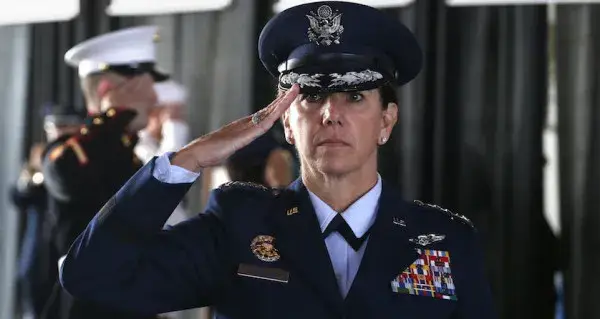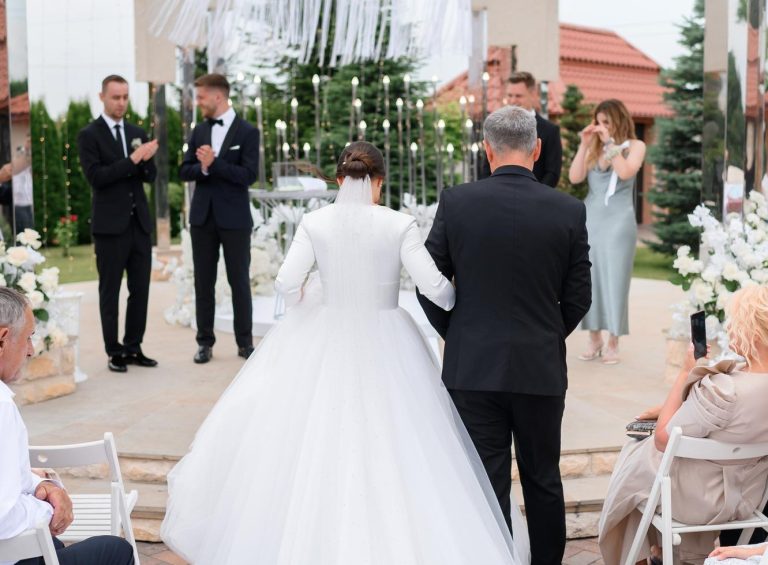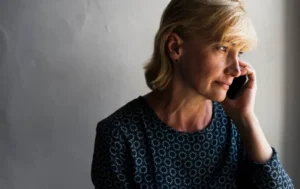The Wedding That Never Was
A Mother’s Instinct, a Son’s Betrayal, and the Truth That Changed Everything
Isabella Rossi was the perfect woman. Too perfect, in fact. A flawless, meticulously curated masterpiece of a person who seemed almost too good to be real. When my son David introduced her six months ago, his face illuminated with a kind of incandescent joy I hadn’t witnessed in years, I had tried—with every fiber of my being—to like her.
She was undeniably beautiful, blessed with the kind of classical, sculpted features that Renaissance artists would have wept to capture. She was remarkably intelligent, armed with quick wit and a prestigious university degree. And she was, above all else, devastatingly charming in ways that seemed almost calculated.
During our first dinner together at David’s favorite restaurant, she effortlessly quoted his beloved obscure poets, discussed the noir lighting techniques in his cherished black-and-white films, and feigned deep, almost reverent admiration for his complex career in tech finance. She was a perfect mirror, reflecting back at my son the most idealized version of himself, and he was utterly, completely captivated by the reflection.
But I am a mother. And a mother possesses a certain instinct—a finely honed internal sensor for the inauthentic, developed over decades of deciphering truths hidden behind scraped knees, teenage silences, and the carefully constructed lies that children tell to protect themselves or avoid punishment. And Isabella, to my experienced eye, rang like a perfectly performed but utterly false note.
There was a flicker of cold calculation in her eyes when she thought no one was watching, a rehearsed quality to her laughter that never quite reached those beautiful eyes, a subtle but persistent dissonance between the woman she presented to the world and the woman I felt lurking just beneath that polished surface.
The Concerned Mother
“You’re just being a jealous mother, Mom,” David had said, his tone carrying that frustrating mixture of love and exasperation that adult children reserve for parents who dare to question their choices. We were having coffee one afternoon when I’d gently, cautiously voiced my reservations. “You’ve had me to yourself for so long. Can’t you just be happy for me? She’s literally everything I’ve ever wanted in a partner.”
How could I argue with a man so completely under a spell? To him, my genuine concern wasn’t protection—it was possession. My carefully worded questions weren’t born of maternal wisdom, but of selfish fear of being replaced in his life. So I backed off, at least outwardly. I smiled at the elaborate engagement party, helped choose an expensive caterer for the wedding, and complimented her exquisite taste in everything from flower arrangements to classic literature.
But I absolutely did not stand down.
I, Margaret Chen, a retired history professor who had spent a lifetime analyzing patterns and excavating truths from carefully constructed narratives, had not raised my only son to be devoured by a predator. I loved him far too much to let him walk blindly into what my gut screamed was a meticulously set trap.
So I did something I never imagined I would do. I took a significant portion of my retirement savings—money I had earmarked for a long-dreamed-of trip to see the ancient libraries of Alexandria—and I made a call. I hired the best private investigator in the city, a man whose discretion was as legendary as his results. My strategy wasn’t confrontation; it was verification. I had hoped, with a desperation that manifested as a physical ache in my chest, that he would prove me catastrophically, embarrassingly wrong.
He did not.
The Devastating Truth
Two weeks before the wedding, the investigator—an ex-cop named Frank with weary eyes that had clearly seen the worst of human nature—met me in a quiet, dimly lit coffee shop that smelled of roasted beans and approaching rain. He didn’t waste time with pleasantries or small talk. He simply slid a thick manila envelope across the worn wooden table. It landed with a soft, final thud that seemed to echo in my ears.
“You were right, ma’am,” he said, his voice a low, gravelly murmur. “Your maternal instinct was absolutely spot on. Something is very, very wrong here.”
Isabella’s fatal mistake, it turned out, was her breathtaking audacity. She was a gambler playing the highest-stakes game of her life, betting that the sheer velocity of her charm and the gilded world she was entering would completely obscure the grimy, desperate world she was frantically trying to escape.
Her real name was not Isabella Rossi. It was Sophia Costello.
And Sophia Costello, Frank explained as I stared in horror at a grainy photocopy of a Chicago police mugshot, was currently out on a five-hundred-thousand-dollar bail for her alleged role in a massive wire fraud scheme. She and a partner were accused of creating an elaborate series of shell companies that systematically targeted elderly, vulnerable investors, swindling them out of their hard-earned life savings—over six million dollars in total.
“She’s on federal bond,” Frank explained, pointing to a highlighted line in the legal document he’d printed. “With the strict, non-negotiable condition that she not leave the state of Illinois for any reason without prior court approval. Her passport has been surrendered to the court. The judge on her case is Judge Evelyn Reed—a particularly tough one. A real bulldog. The press calls Costello ‘the Nightingale of the North Shore’ because of how she literally sang her way into these poor folks’ bank accounts.”
My heart hammered against my ribs like a frantic, trapped bird desperate to escape. The woman my son was about to marry, the woman who would soon have legal access to our family’s name and financial resources, was not a charming art consultant from a good family. She was a federal defendant facing a decade or more in prison.
But that wasn’t all. Frank had dug even deeper.
“Here’s the real kicker,” he said, his voice dropping even lower. He slid another piece of paper across the scarred table. It was a flight itinerary. Sophia Costello, using a high-quality fake ID under the alias Isabella Rossi, had booked two non-refundable, first-class tickets to Fiji for what David believed would be their honeymoon. The flight was scheduled to depart at ten o’clock on the night of the wedding. Fiji—a beautiful island nation, Frank noted dryly, with no extradition treaty with the United States.
The wedding wasn’t a new beginning. It was an elaborate escape plan. David wasn’t her beloved partner; he was her unwitting ticket out, her innocent accomplice. The six million dollars, Frank strongly suspected, were likely already waiting for her in an untraceable offshore account.
The Impossible Decision
That night, I sat alone in the deep, suffocating silence of my living room, the investigator’s comprehensive file lying open on the coffee table like damning evidence at a trial. A terrible, soul-crushing decision lay before me.
To expose this truth now would be to detonate an emotional bomb in the middle of my son’s life. It would destroy him, humiliating him in the most public and brutal way imaginable in front of everyone he knew and respected. His heart would be completely shattered, his judgment forever questioned, his name permanently linked to a sordid criminal scandal.
But to do nothing? To stand by silently and watch as he legally shackled himself to a calculating felon? To allow him to be implicated, however innocently, in her crimes when she inevitably made a misstep? To let her systematically drain his resources and then vanish into the night, leaving him in complete ruins? That was an even more unthinkable betrayal of my duty as his mother.
I thought of my own mother, a pragmatic woman of immense inner strength, who always said that sometimes the cruelest-looking love is, in fact, the kindest. It is the love that is willing to cause a sharp, clean pain now to prevent a festering, ultimately fatal wound later.
With a hand that trembled slightly, I took out a box of my finest cream-colored stationery and my favorite fountain pen. And I began to write.
I composed a short, anonymous, carefully worded handwritten note. Then I sealed it in an envelope along with a pristine copy of the lavish wedding invitation—complete with the date, time, and location—and the printout of the Fiji flight itinerary. The next morning, I drove to a federal shipping office and sent the sealed package, marked “PERSONAL AND URGENT,” via overnight courier to the private chambers of the Honorable Evelyn Reed at the Chicago Federal Courthouse.
My note was simple, direct, and impossible to ignore:
“Your Honor,
It has come to my attention that your defendant in case #CR-77-109, Ms. Sophia Costello, is scheduled to be married this coming Saturday under a false identity at St. Michael’s Church. Following the ceremony, she intends to flee the country with her new husband, as evidenced by the enclosed flight confirmation.
I trust you will find this information useful in the administration of your duties.
A Concerned Citizen.”
I didn’t just hope for justice. I had hand-delivered the fugitive’s complete escape plan, gift-wrapped, directly to the judge who had jurisdiction over her case. The rest was out of my hands and in the hands of the law.
The Wedding Day
The trap, in its beautiful and terrible simplicity, was the wedding itself. St. Michael’s Church, with its soaring Gothic arches and magnificent stained-glass windows that cast rainbow patterns across the ancient stone floor, was the perfect stage. Isabella—Sophia—gliding down the aisle in her magnificent ivory gown, believed it was the backdrop for her ultimate getaway. In reality, it was the final, inescapable stage of her capture.
I sat alone in the front pew, a solitary figure in a sea of joyful, expectant faces. My heart pounded a frantic rhythm against my ribs, each beat a gamble on my son’s entire future. I was betting his short-term happiness against his long-term survival, and the crushing weight of that wager felt almost unbearable.
David, looking impossibly handsome and endearingly nervous in his perfectly tailored tuxedo, stood at the altar, beaming with an unadulterated love that made my own heart physically ache. He was completely, blissfully oblivious to the abyss that was about to open beneath his feet. He caught my eye and gave me a small, questioning smile, as if to say, See, Mom? Everything is perfect. You were wrong about her. I forced a smile in return—a brittle, fragile thing that felt like it might shatter on my face.
I discreetly scanned the opulent, flower-draped church, my senses on high alert. No uniformed police officers. No grim-faced federal agents in dark suits trying to blend in among the wedding guests. No sign whatsoever of anything out of the ordinary. A cold, creeping fear began to snake its way into my heart. What if Judge Reed had never received the package? What if she had received it but dismissed it as a prank or a spiteful tip from a jilted ex-lover? What if she simply didn’t care enough to act on anonymous information? The minutes ticked by with agonizing slowness, each one a small lifetime of mounting anxiety.
The ceremony began. The grand organ swelled, filling the cavernous space with a triumphant, thunderous melody. The traditional vows were exchanged, David’s voice clear and strong, Sophia’s a soft, convincing whisper that carried just far enough. Rings were placed on trembling fingers. And then, the moment arrived.
The priest, a kind-faced man with a gentle smile and decades of experience, beamed at the assembled congregation. “And so, by the power vested in me, I ask: if there be anyone here who can show just cause why these two may not be lawfully joined together, let them speak now or forever hold their peace.”
A traditional, largely ceremonial question that rarely produced any response. But for me, it was the countdown to detonation.
A long, heavy pause stretched over the hushed church. It was the heaviest, most suffocating silence I had ever experienced in my life. Five seconds passed like hours. Then ten. My hope, which had been a flickering candle flame in darkness, was brutally extinguished. A cold, sick certainty washed over me in waves. My desperate gambit had failed. I had miscalculated. I had failed my son.
And then, it happened.
BOOM.
The heavy oak doors at the back of the church suddenly swung open with such tremendous force that they crashed against the ancient stone walls, the sound echoing like a cannon shot through the sacred silence. Every head in the church swiveled in shock and confusion.
A woman stood silhouetted against the bright afternoon sunlight streaming through the doorway. She was in her late fifties, with sharp, intelligent features and an unmistakable aura of absolute, unshakable authority. She was dressed not in wedding attire, but in a dark, perfectly tailored business suit that spoke of power and purpose. She was not in any hurry. She began to walk, her steps calm and purposeful, down the long center aisle. The sharp click, click, click of her sensible heels on the stone floor was the only sound in the cavernous, shocked silence.
It was Judge Evelyn Reed.
She stopped at the front of the church, her penetrating gaze sweeping past the stunned guests, the bewildered priest, and my shell-shocked son. She looked only at the bride, her expression one of cold fury tempered by absolute certainty.
“I object,” she said, her voice clear, powerful, and utterly unmistakable, carrying to every corner of the silent church. She held up a leather-bound folder. “The defendant, Sophia Costello, is attempting to marry under a false identity in a clear and deliberate attempt to flee the country, in direct and flagrant violation of the conditions of her federal bail.”
She then turned her steely gaze to the bewildered priest. “Father, this wedding is adjourned. Permanently.”
At that precise moment, two large men in plain clothes who had been seated inconspicuously in the back pews stood up in perfect synchronization. They walked toward the altar with grim, practiced purpose. They were United States Marshals.
The Unmasking
Sophia’s face, once a perfect picture of bridal bliss and romantic joy, was now a mask of pure, cornered horror. Her carefully practiced composure shattered into a million irreparable pieces. “I… I don’t know who you’re talking about,” she stammered, her voice a pathetic, reedy whisper that carried no conviction. “My name is Isabella Rossi. This is some kind of terrible mistake! I don’t know what’s happening!”
Judge Reed was completely unmoved, her expression one of cold, righteous fury. “The warrant for your immediate remand has already been signed, Ms. Costello. Do not make this situation any worse for yourself than it already is.”
The destruction of Isabella Rossi—or rather, Sophia Costello—was swift, public, and absolutely complete. One of the marshals produced a pair of handcuffs, the metallic click echoing in the dead silence as he professionally secured her wrists behind the back of her designer wedding gown. She was escorted out of the church—a surreal and pathetic sight in her ivory silk and delicate lace—past the stunned, gaping faces of the friends and colleagues she had so thoroughly and systematically duped.
My son David simply stood there at the altar, frozen in a state of profound shock and absolute humiliation. His perfect, beautiful world had been utterly detonated, and he was left standing alone in the smoking crater, trying to comprehend what had just happened.
The Aftermath
The weeks and months that followed were a painful, slow-motion crawl through emotional wreckage. The full, sordid story came out in a series of sensational news articles that dominated local headlines. Sophia Costello was extradited back to Chicago, where she faced not only the original fraud charges but a comprehensive raft of new ones for bail violation, identity fraud, passport fraud, and conspiracy to flee prosecution. Her eventual sentence, the newspapers promised, would be severe and lengthy.
David was utterly devastated. He retreated into himself, into a dark cocoon of shame and heartbreak that seemed impenetrable. For a painful stretch of time, he wouldn’t speak to me. He couldn’t even look at me. In his eyes, I was the one who had lit the fuse that destroyed his life. He saw my actions not as a desperate rescue, but as a betrayal of his trust, a public assassination of his happiness. The silence between us was a chasm—deep, cold, and seemingly unbridgeable.
But the public, brutal nature of the implosion was also, in its own terrible way, a mercy. It left absolutely no room for doubt, no space for lingering romantic attachment or agonizing what-ifs. He had been forced to see her for exactly who she was, not in a quiet, private revelation, but in a public spectacle of handcuffs and federal marshals. The clean, sharp pain I had gambled on was agonizing, but it prevented the slow, insidious poison of prolonged deception.
Slowly, painstakingly, he began to climb out of the emotional abyss. He started therapy with a counselor who specialized in trauma and betrayal. He reconnected with old friends who had stood by him. And one day, three months after the wedding that never was, my phone rang.
“Mom?” he said, his voice quiet and tentative. “Can we talk?”
The Healing
A year has passed since that devastating day. The seasons have turned, and the raw, bleeding wound has slowly begun to scar over. David is healing, though the process has been neither quick nor easy. He is quieter now, more cautious in his relationships, but also more perceptive and self-aware. He is humbled by the experience, and paradoxically, he is closer to me now than he has been since he was a young boy. He finally, truly understands the fierce, sometimes painful weight of a mother’s intuition.
Tonight, for the first time in a very long time, we are having a quiet dinner at my house. The scandal has faded from public memory, the whispers have died down to nothing. It is just the two of us, sharing a home-cooked meal and the comfortable silence that can only exist between two people who have weathered a terrible storm together and emerged on the other side.
“I was such a fool, Mom,” he says, staring down at his plate, the words he has struggled to articulate for a year finally emerging. “I was so desperate for it to be real, so invested in the fantasy, that I refused to see anything else. I’m so sorry I didn’t listen to you. I’m sorry for how I treated you afterward.”
I reach across the table and take his hand. It feels strong and familiar in mine—the same hand I held when he was a little boy afraid of the dark. “You weren’t a fool, David,” I say softly but firmly. “You are a man with a good and generous heart. You wanted to believe in the best in people. That is a rare and beautiful quality. Never lose that capacity for trust and love. Now, you simply know that you also have to be prepared for the worst. Trust, but verify.”
He looks up, and a sad, knowing smile touches his lips—the first genuine smile I’ve seen in months. “I guess so. The cruelest love is the kindest, right? That’s what Grandma always said.”
“She was a wise woman,” I agree, squeezing his hand.
My happy ending is not a celebration or triumph. There is no sense of victory, no satisfaction in being proven right. It is simply this: this quiet moment. The profound, bone-deep relief of having my son back, safe and whole. Our relationship was shattered that day in the church, but now it is being carefully rebuilt, piece by painstaking piece, on a new, stronger foundation of hard-won wisdom, mutual respect, and a love that has been tested by fire and found to be unbreakable.
Sometimes a mother’s love means letting your child fall. And sometimes, it means catching them before they hit the ground—even if they hate you for it at first.

Emily Johnson is a critically acclaimed essayist and novelist known for her thought-provoking works centered on feminism, women’s rights, and modern relationships. Born and raised in Portland, Oregon, Emily grew up with a deep love of books, often spending her afternoons at her local library. She went on to study literature and gender studies at UCLA, where she became deeply involved in activism and began publishing essays in campus journals. Her debut essay collection, Voices Unbound, struck a chord with readers nationwide for its fearless exploration of gender dynamics, identity, and the challenges faced by women in contemporary society. Emily later transitioned into fiction, writing novels that balance compelling storytelling with social commentary. Her protagonists are often strong, multidimensional women navigating love, ambition, and the struggles of everyday life, making her a favorite among readers who crave authentic, relatable narratives. Critics praise her ability to merge personal intimacy with universal themes. Off the page, Emily is an advocate for women in publishing, leading workshops that encourage young female writers to embrace their voices. She lives in Seattle with her partner and two rescue cats, where she continues to write, teach, and inspire a new generation of storytellers.









